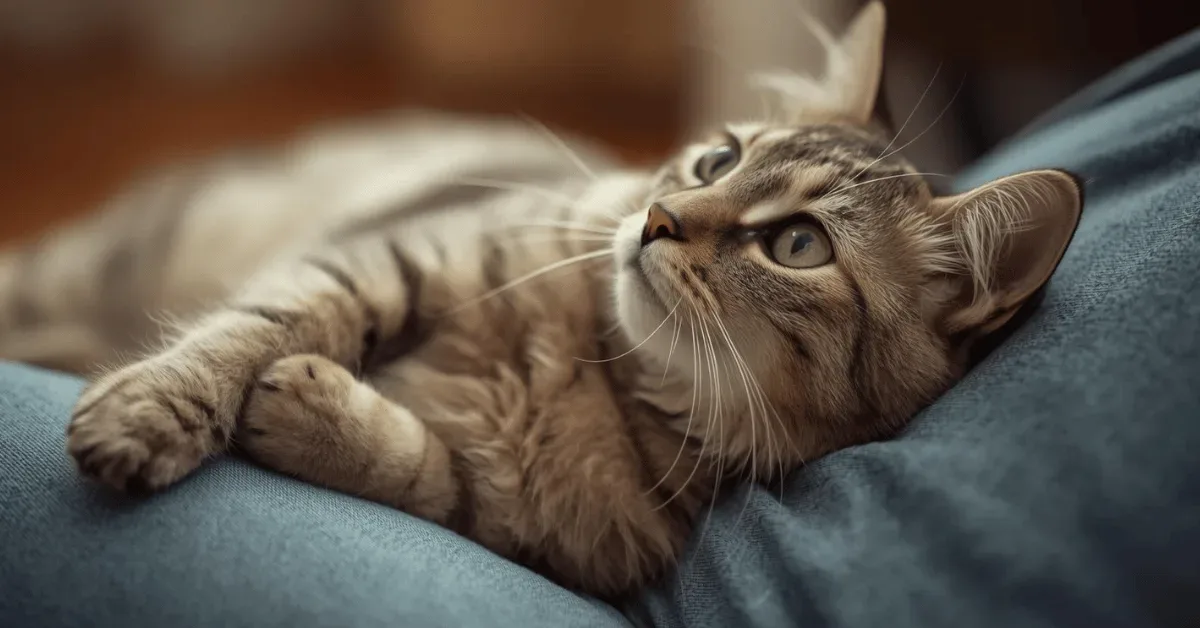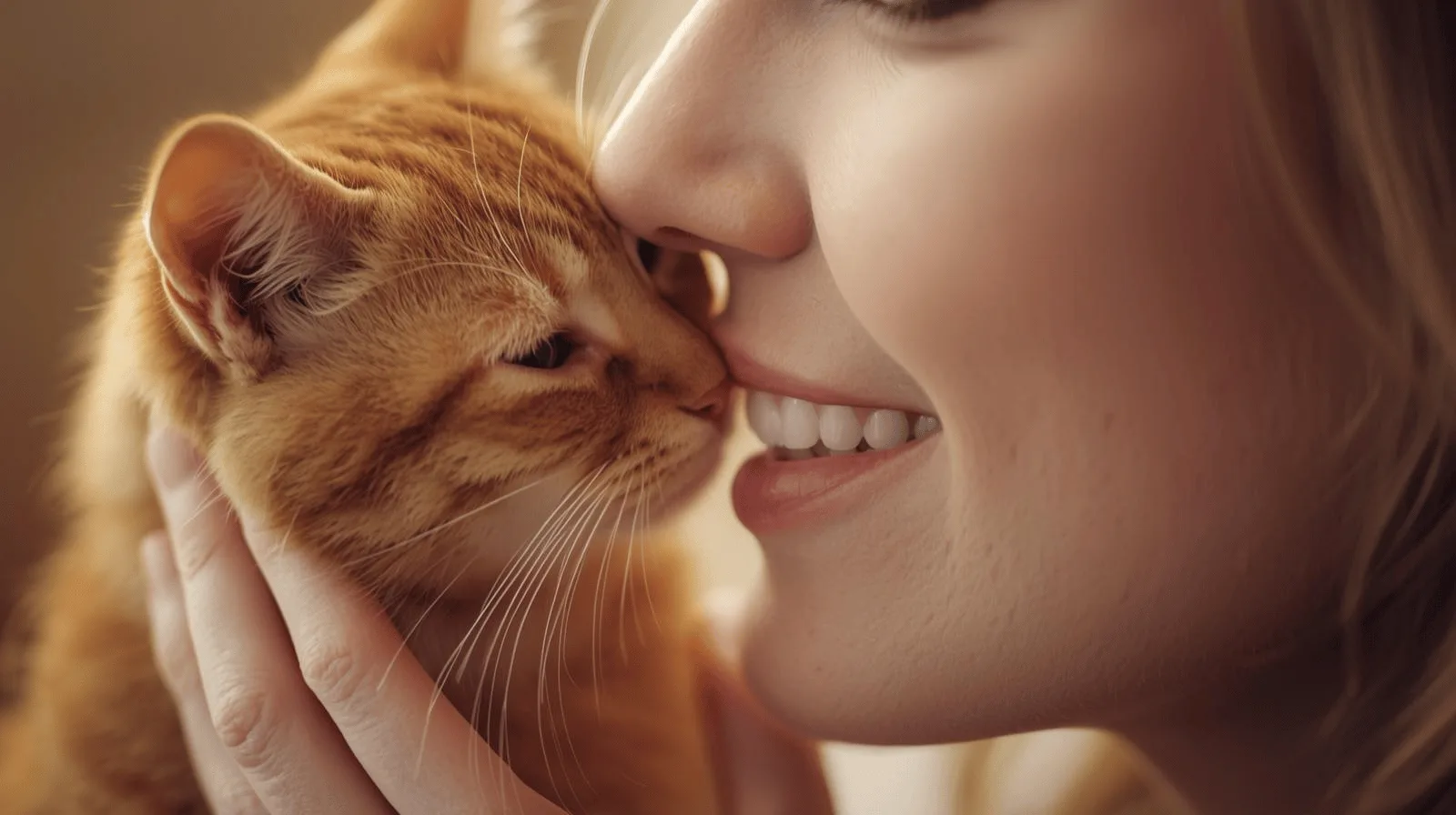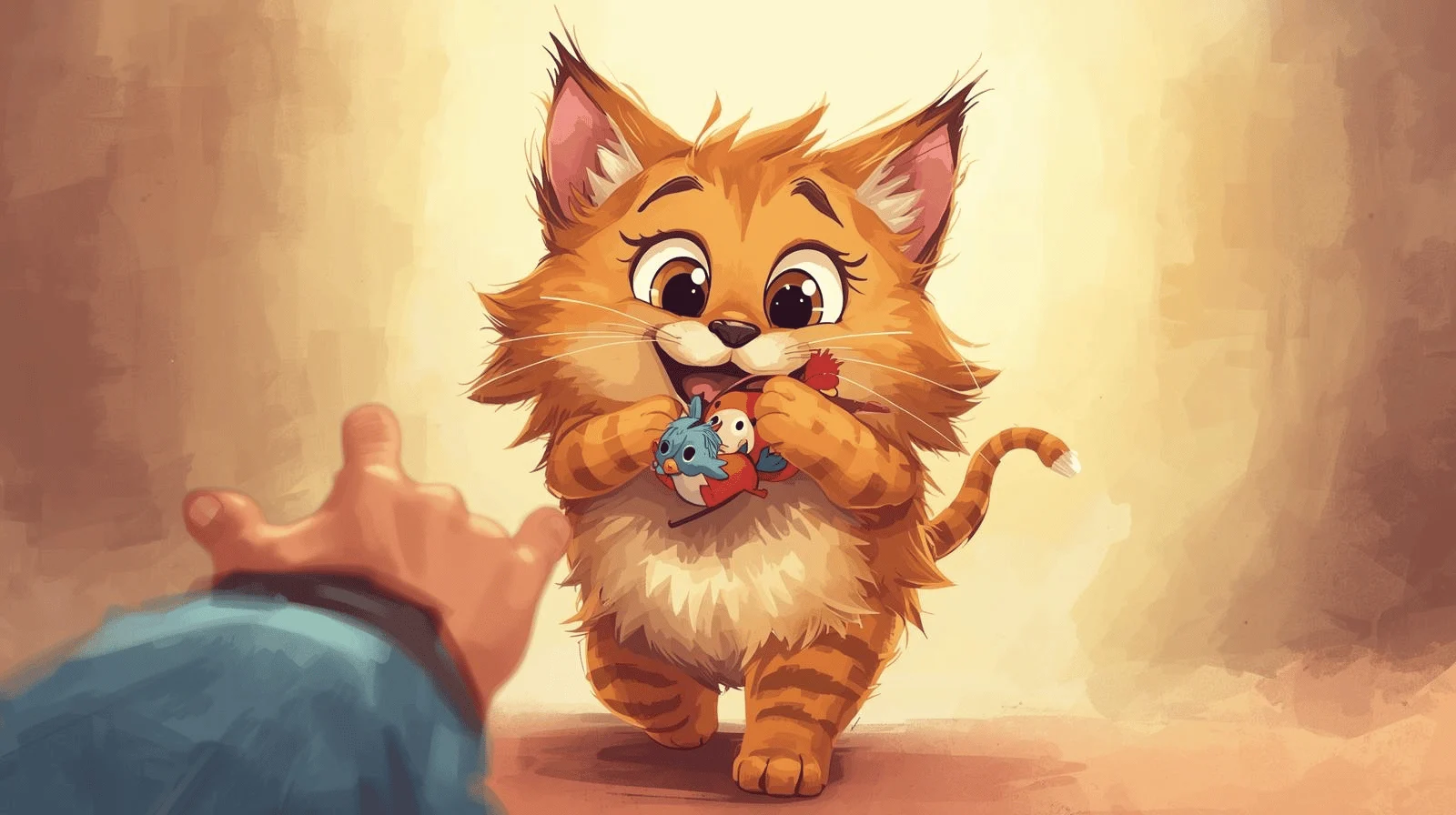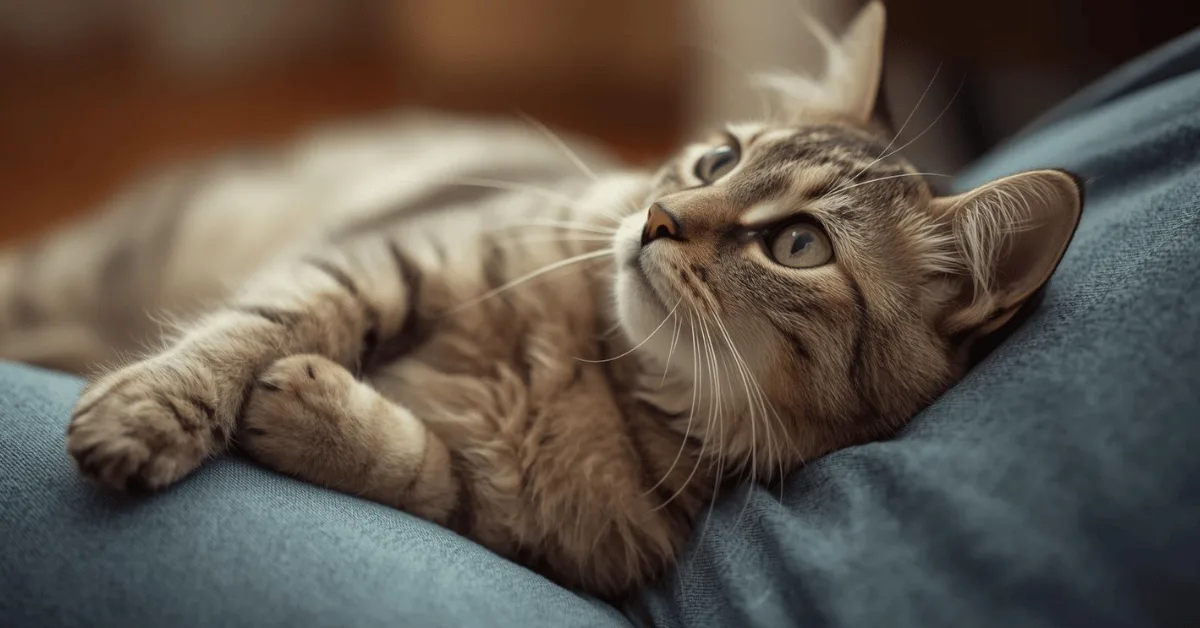Cats are often seen as mysterious creatures, keeping their emotions carefully guarded. While dogs may wag their tails and shower you with kisses, cats prefer subtler methods to communicate their affection.
1. Slow Blinking
Why Cats Blink Slowly at People They Love
Cats communicate volumes through their eyes. When your cat looks at you and gives a slow, deliberate blink, they’re offering a gesture often called the “cat kiss.” It’s one of the clearest signs of trust.
In the animal world, maintaining direct eye contact can signal aggression. By blinking at you, your cat is showing that they feel safe enough to let their guard down. It’s their way of saying, “I feel calm around you.”
How to Return the Gesture
You can strengthen your bond by responding with a slow blink of your own. Try relaxing your face, making eye contact, and slowly closing your eyes before opening them again. Many cats will recognize this as a sign of affection and may even blink back.
This simple ritual creates a two-way connection, reinforcing your relationship in a language your cat instinctively understands.
2. Belly Exposure

What It Means When Cats Show Their Stomach
A cat’s belly is its most vulnerable area. In the wild, exposing it would put them at great risk. When your cat rolls over and shows you their stomach, it’s a profound sign of trust. They’re telling you they feel safe in your presence.
However, this doesn’t always mean they want you to touch it. Many cats prefer you simply acknowledge the gesture. Respecting this boundary is important for maintaining trust.
Admiring the Gesture Without Overstepping
If your cat flops onto their back, you can respond verbally with a gentle tone or by softly stroking a safer area, like their chin or head. Over time, some cats may even enjoy a belly rub, but it’s best to let them set the rules.
This act is their silent way of saying, “I’m comfortable with you. I trust you won’t harm me.”
Related Posts
- 6 Reasons Why Your Cat Sneezes All the Time
- Why Your Cat Follows You Everywhere
- Why Do Cats Meow at Night?
- Why Do Cats Knead Blankets and Pillows?
3. Sleeping Near or On You
Why Sleep is Such a Vulnerable Act for Cats
Sleep is when cats are at their most defenseless. In the wild, they must stay alert to predators and threats. If your cat chooses to sleep near you—or better yet, directly on you—it’s one of the strongest demonstrations of trust you’ll ever receive.
They’re placing their safety in your hands, confident that you’ll protect them while they rest. That level of vulnerability speaks volumes about how much they value your presence.
How Shared Sleep Strengthens Your Bond
If your cat curls up beside you at night, rests on your lap, or naps on your chest, take it as a sign of deep affection. They not only enjoy your warmth but also associate you with security and peace.
This simple act transforms your relationship from caretaker and pet into trusted companions who find comfort in one another.
4. Head-Butting and Rubbing

The Role of Scent in Cat Communication
Cats use scent to define their world. They have special glands on their cheeks, forehead, and around their mouth that release pheromones. When your cat gently head-butts or rubs against you, they’re not just asking for attention—they’re leaving their scent on you.
This behavior, called “bunting,” is their way of marking you as part of their safe territory. It’s a message both to you and to other animals: “This human is mine, and I trust them.”
Why It Feels Like a Hug in Cat Language
Though it may seem small, this act is one of the most intimate ways a cat can express affection. Accepting the gesture without pushing them away encourages your cat to repeat it, strengthening your connection each time.
It’s essentially a feline hug, wrapped in their unique communication style.
5. Following You Everywhere
Understanding Why Cats Trail Their Humans
Does your cat follow you from the kitchen to the bathroom, then curl up nearby while you work? This isn’t just curiosity—it’s a sign of trust and attachment.
Cats that feel bonded to their humans like to stay close, even when they don’t need food or attention. Your presence is comforting, and being near you helps them feel secure.
Turning Shadow-Like Behavior Into Quality Time
Instead of brushing this behavior off, use it as an opportunity to bond. Speak to your cat as you move around, let them sit near you while you work, or pause to give them a quick scratch behind the ears.
These small acknowledgments remind your cat that their trust is well-placed, deepening your companionship.
6. Bringing You Gifts

Why Cats Share Their “Treasures”
One of the more puzzling behaviors cats display is bringing their owners gifts. Sometimes these gifts are toys, but for outdoor cats, they may be less pleasant surprises like mice or birds.
While this might not seem like affection, it’s actually a profound gesture of trust. Cats in the wild often share food with those they consider family. By presenting you with a catch or a toy, your cat is saying, “I care for you enough to share what’s mine.”
How to Respond to Your Cat’s Gifts
Even if the gift isn’t exactly welcome, it’s important to respond positively. A gentle “thank you” and some affection reassure your cat that their trust and generosity are appreciated.
This exchange reinforces your bond and respects the social behaviors that cats instinctively follow.
How to Strengthen Your Cat’s Trust Even More
Respect Their Boundaries
Cats value independence. Forcing interaction can backfire, while allowing your cat to set the pace of affection builds confidence.
Provide a Safe and Enriching Environment
Cats trust more deeply when they have consistent food, clean water, safe resting places, and engaging toys. A stable environment creates a foundation for strong bonds.
Communicate in Their Language
Respond to slow blinks, respect belly displays, and accept bunting. These small actions show that you understand and appreciate your cat’s unique ways of expressing love.
By meeting them halfway, you’re building a relationship that’s not just about care—but about trust and companionship.
Conclusion
Cats may seem mysterious, but when they trust you, their behavior becomes a window into their hearts.
Recognizing and respecting these signals allows your relationship to flourish. Over time, your cat will not only see you as their caregiver but also as their chosen family.
For additional guidance on strengthening your relationship with your cat, the ASPCA offers helpful resources for pet parents.

